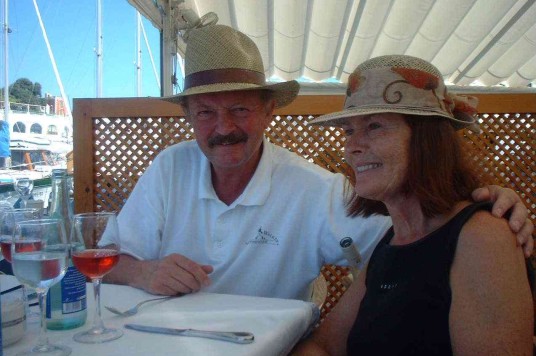John feels the wonder of the da Vinci robot
St George’s has been reported to be the hospital carrying out the highest number of partial nephrectomies using the da Vinci® Surgical System.
Patients who are diagnosed with kidney cancer have been found to benefit from having an operation to remove the section of their kidney that is diseased whilst retaining the section of their kidney that is still healthy. This partial removal is called a “partial nephrectomy”.
Intuitive Surgical, the global leader in robotic-assisted minimally invasive surgery and developer of the da Vinci® Surgical System, has announced that nearly 1,500 partial nephrectomies have now been completed in England since the first procedure was carried out in Leeds General Infirmary in 2006.
According to a recent study published in February in Health Affair, the adoption of robotic-assisted minimally invasive surgery (MIS) delivers sizable benefits to patients with kidney cancer, and that value accrues over time.
The study highlighted that the availability of robotic-assisted MIS led to a 52% increase in the rate of partial nephrectomy over surgery to remove the entire kidney. This was shown to increase one-year survival rates and decrease the rate of renal failure, which in turn reduced the need for and costs associated with dialysis.
Nick Turkentine, Chief Operating Officer of the leading patient group The James Whale Fund for Kidney Cancer, said: “We feel that robotic-assisted surgery is a positive advancement for patients undergoing both partial and radical nephrectomy for kidney cancer.
“Robotic-assisted surgery leaves smaller incisions and is less invasive, which in turn leads to patients spending less time in hospital. Reducing time spent in hospital and resuming ‘normal’ life is an advantage for the patient, alongside the cost benefits for the NHS.”
Mr Christopher Anderson, Urology Consultant at St George’s Hospital said: “The advantages of the keyhole approach are considerable to the patient. Challenging operations can be performed through very small incisions resulting in less post-operative pain, less blood loss and transfusion, less pain relief and shorter hospital stay.
“Since starting robotics at St George’s in 2008 robotic surgery has been used extensively for renal cancer surgery. One particular operation has been removing small tumours from kidneys whereby the rest of the kidney can be spared. St Georges is one of the highest volume centres for this surgery in the UK . In total around 200 renal operations have been performed.”
John’s story:
John Sullivan, 76 came to St George’s late 2013 after being diagnosed with pulmonary embolism.
A CT scan revealed that he not only had the expected blood clots on his lungs but also tumours in both of his kidneys. The news came as quite a shock to John who lost his wife Anneliese to breast cancer in 2006.
John was told he needed an operation to remove the larger of the two kidney tumours but that this could not take place until the blood clots in his lungs had been successfully treated.
After six months of heparin injections the clots had cleared from John’s lungs but his illness and the treatment injections made him a “high risk” surgical patient. As Heparin reduces blood clotting it was favourable for John to have a minimally invasive operation which would minimise blood loss, and also enable him to mobilise quickly after surgery in order to prevent further blood clots forming in the lungs.
Chris Anderson, Urology Consultant at St George’s Hospital, felt John was a perfect candidate for minimally invasive keyhole surgery using the Da Vinci robot. He hoped this would speed John’s recovery and help him get back onto his feet quicker. This approach would also allow the kidney tumour to be removed and spare the remaining healthy part of the kidney.
“The surgery seemed to go very smoothly” says John. “I woke up in the recovery room feeling a little sore but much better than I thought I would. They had me walking around the very next day and I went home just a few days after that. It was wonderful.”
John returned to his active lifestyle soon after the surgery. He is a regular on the golf course, still works a little in children’s publishing, and has applied for voluntary work at Battersea Dogs and Cats Home. He is also sponsoring a talented post graduate student at the Royal Academy of Music in London, and staging a classical concert at All Saints Church in Kingston at the end of June.


